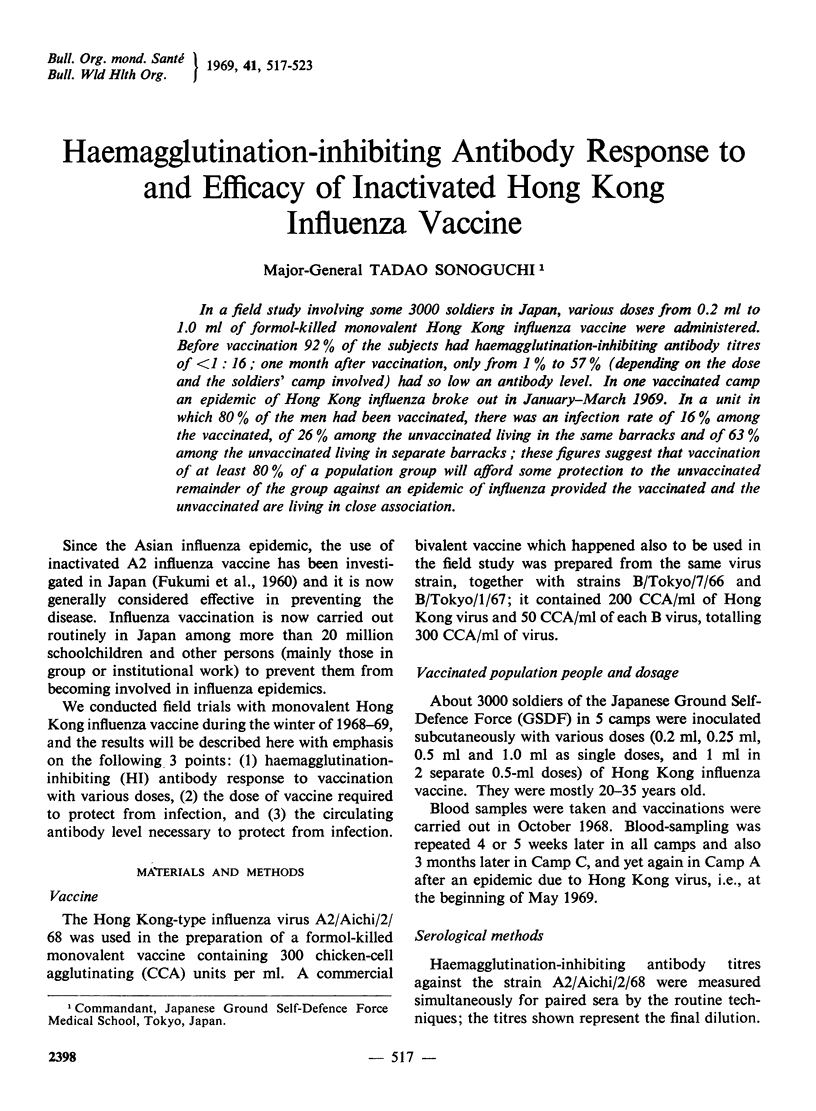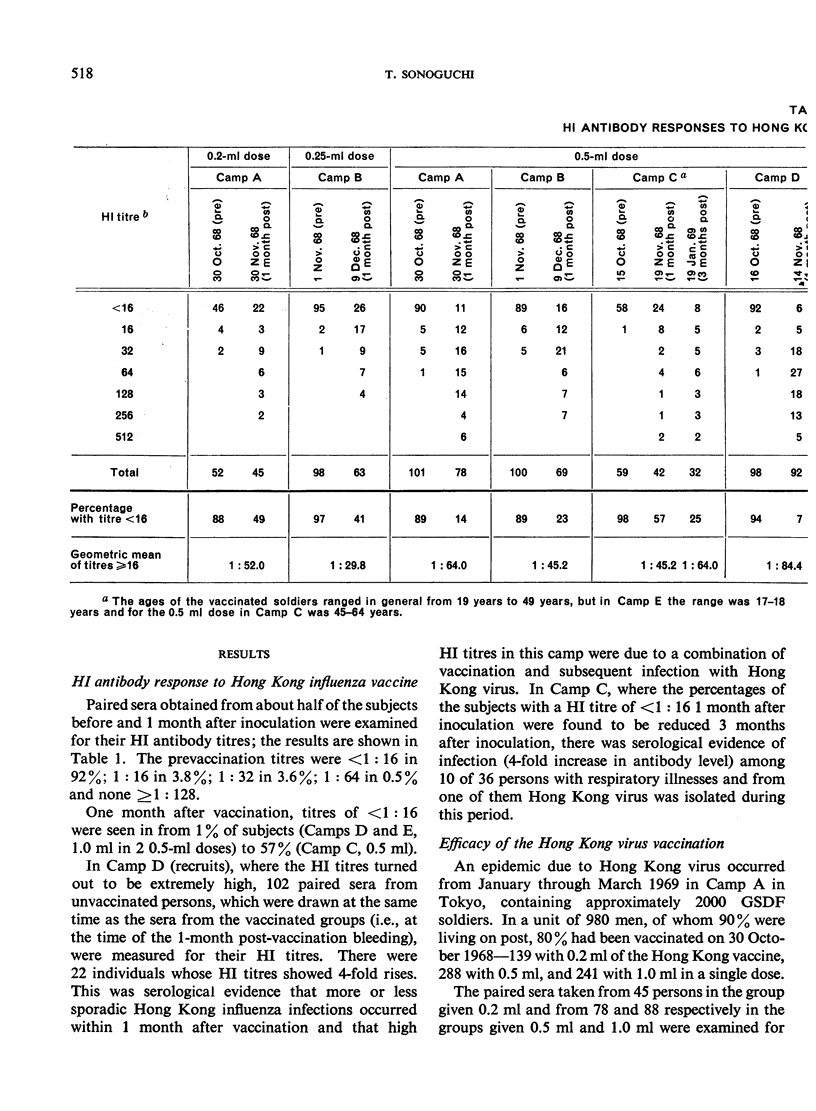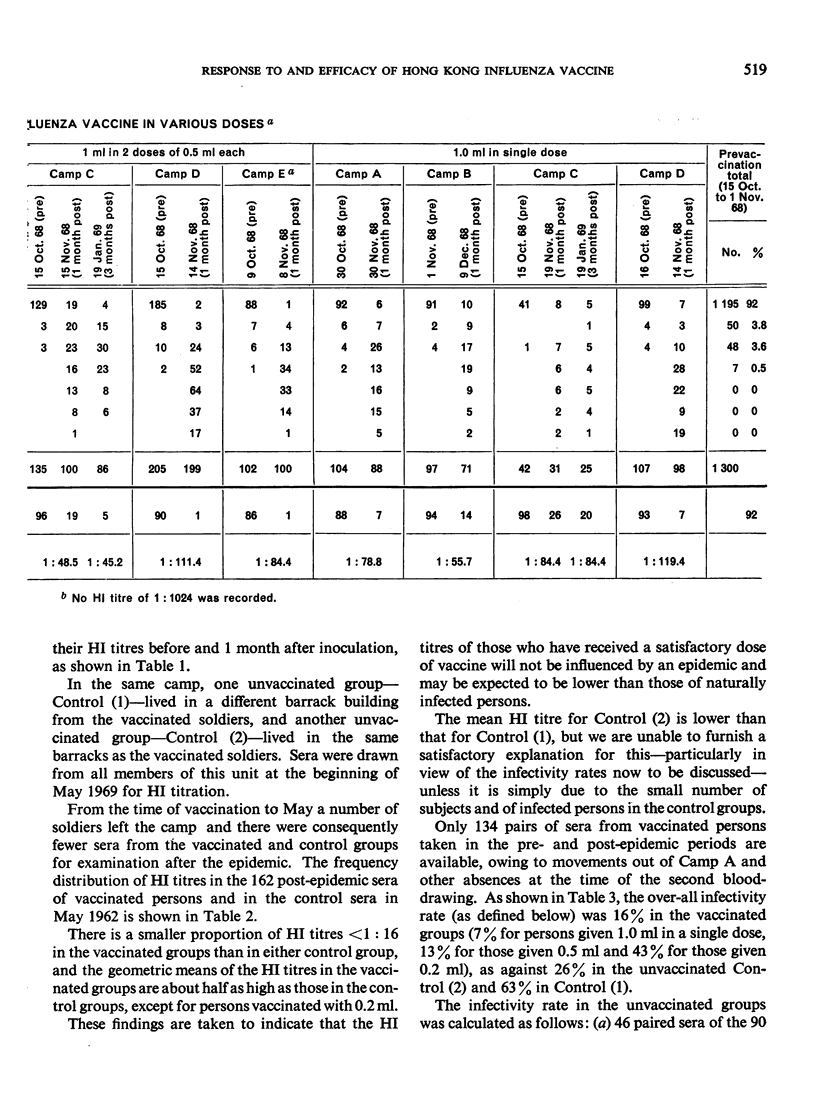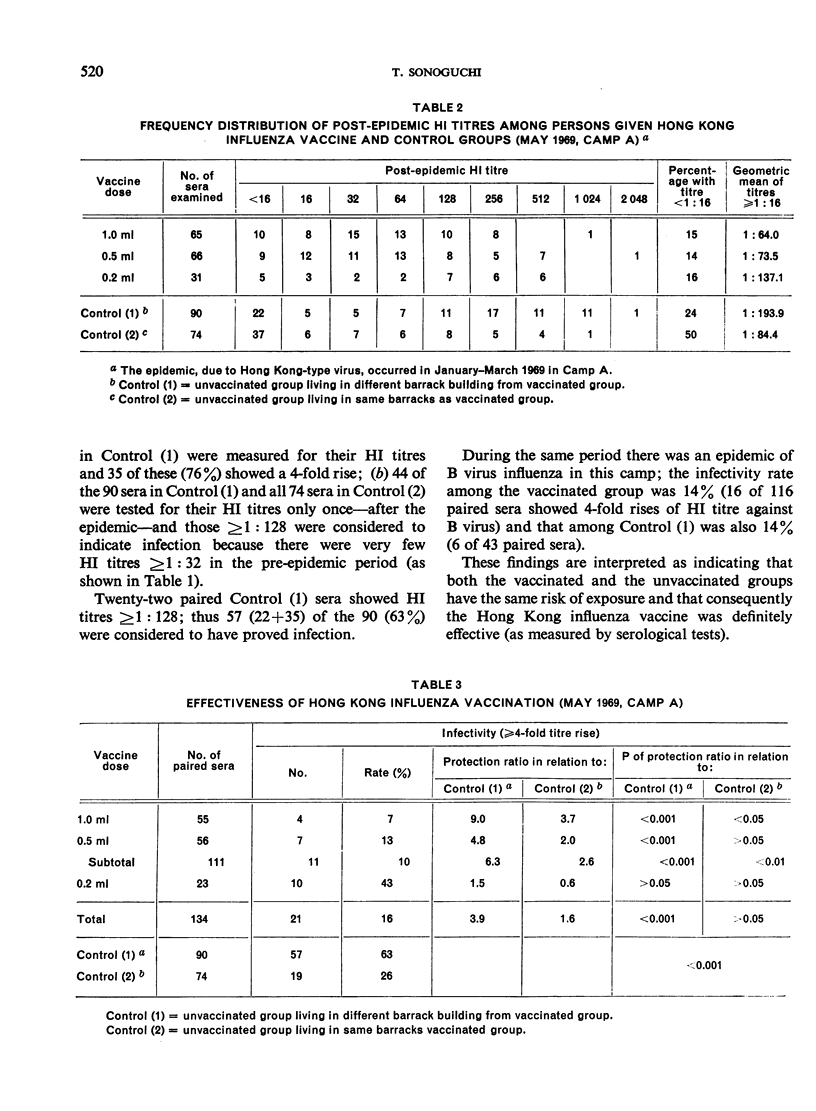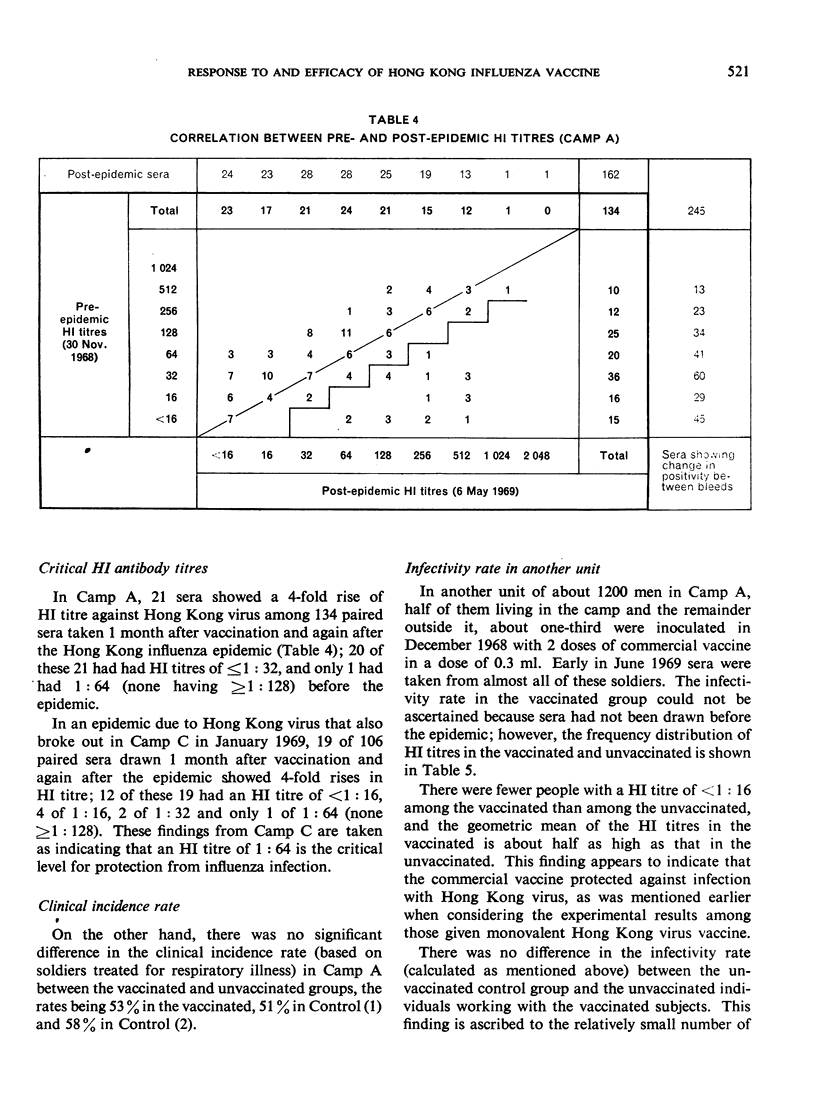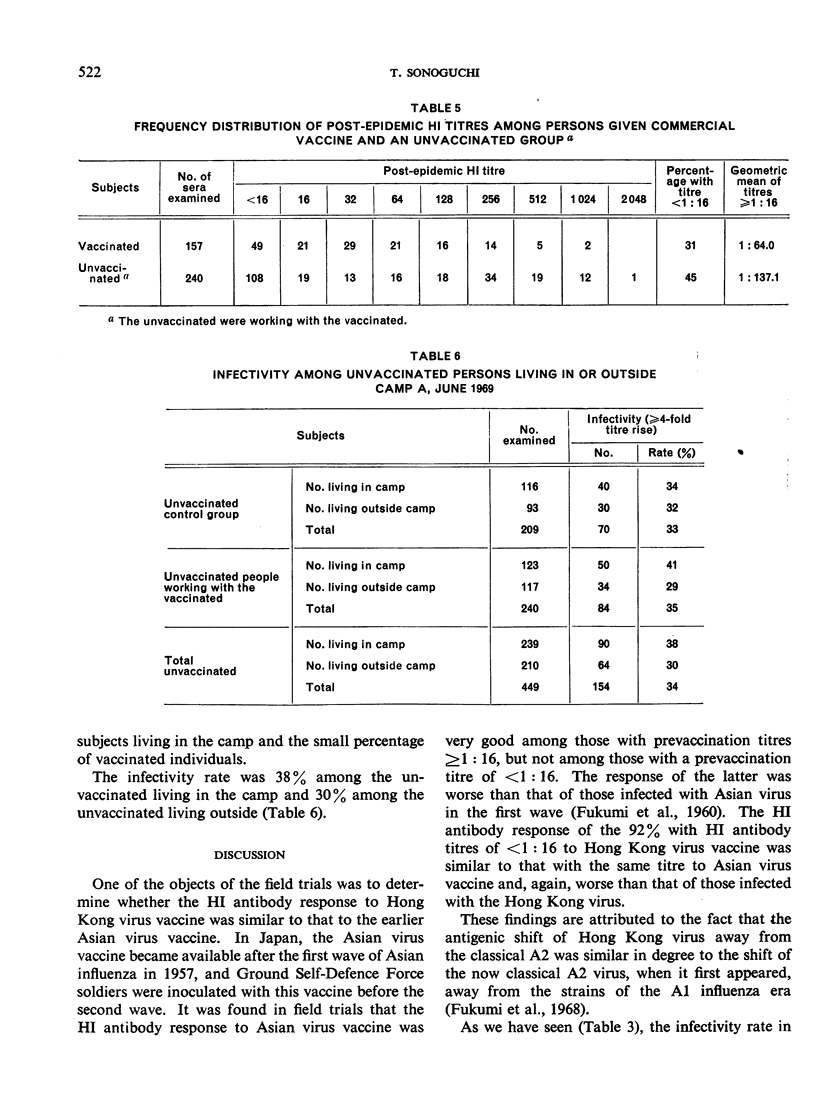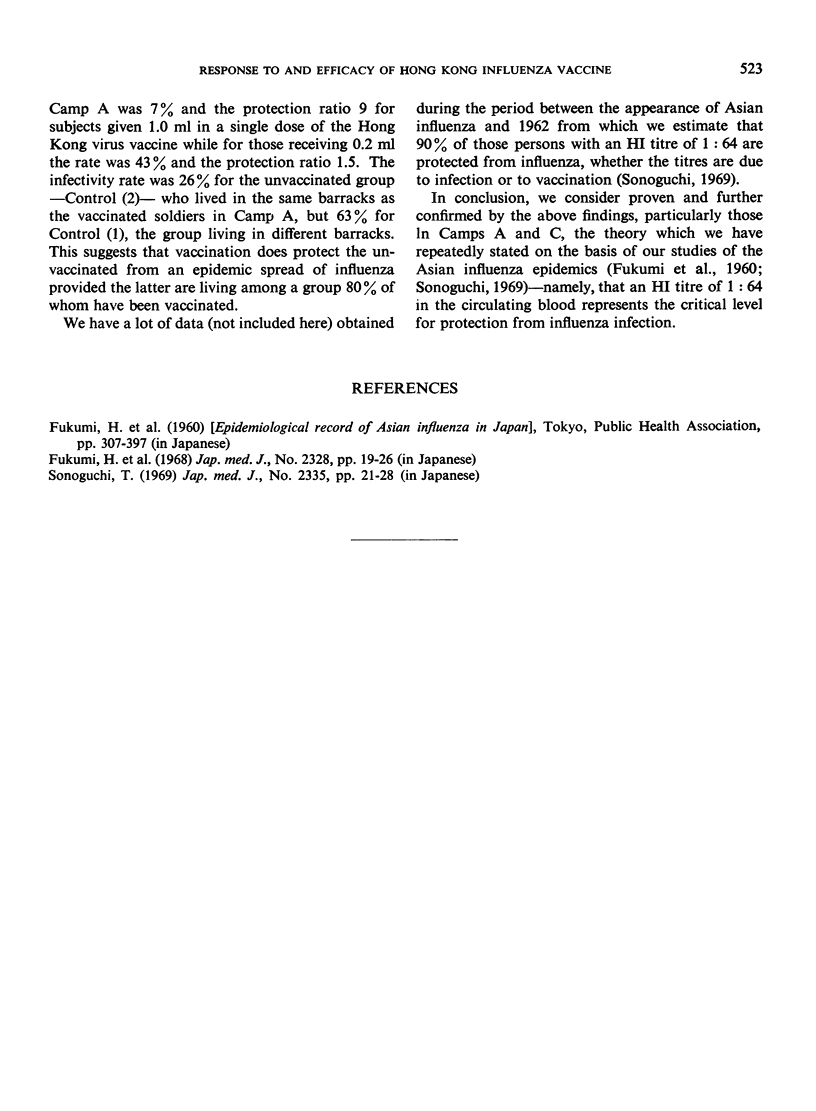Abstract
In a field study involving some 3000 soldiers in Japan, various doses from 0.2 ml to 1.0 ml of formol-killed monovalent Hong Kong influenza vaccine were administered. Before vaccination 92% of the subjects had haemagglutination-inhibiting antibody titres of <1:16; one month after vaccination, only from 1% to 57% (depending on the dose and the soldiers' camp involved) had so low an antibody level. In one vaccinated camp an epidemic of Hong Kong influenza broke out in January—March 1969. In a unit in which 80% of the men had been vaccinated, there was an infection rate of 16% among the vaccinated, of 26% among the unvaccinated living in the same barracks and of 63% among the unvaccinated living in separate barracks; these figures suggest that vaccination of at least 80% of a population group will afford some protection to the unvaccinated remainder of the group against an epidemic of influenza provided the vaccinated and the unvaccinated are living in close association.
Full text
PDF